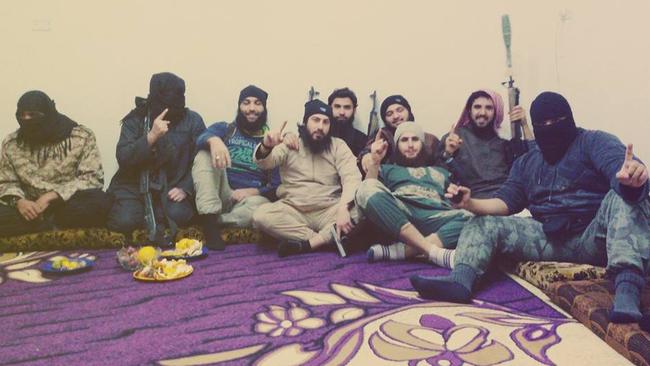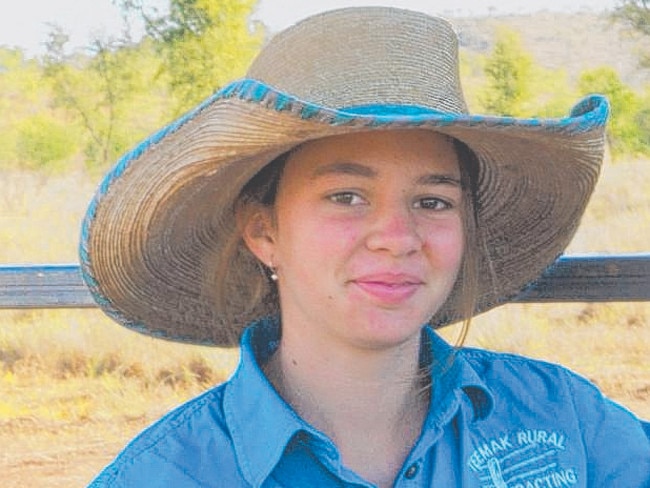Stopping spies from infiltrating our political system; Forcing billion dollar tech-giants to take responsibility for the content on their platforms; Protecting children from cyber paedophiles; Keeping foreign fighters who hold Australian citizenship from returning to our suburbs and detecting attacks local extremists are plotting.
These are the weighty problems Michael Pezzullo grapples with every day in his new powerful position as Secretary of the Home Affairs Department.
Pezzullo is sharp, highly-intelligent and measured. He speaks with a calm tone of voice. He’s a public servant in the traditional mould. Unfailingingly polite, he always refers to Home Affairs Minister Peter Dutton as “the Minister”, while his own advisers call him “Secretary”.
Bringing people in and encouraging them to understand their obligations in terms of our institutions and the rule of law ... deserves a lot of attention
Decisive, articulate and non-partisan, Pezzullo joined the public service 31 years ago and has worked at a senior level with both sides of politics.
His goal, since early in his career, has been to build a larger maritime military capability, which he contributed to in a 2009 White Paper, and to help build a more integrated and unified society — an area he is delving into now in Home Affairs.
Pezzullo is famous for his hard line stance on immigration and for securing Australia’s borders, and is often asked in interviews about how this sits with his family’s background as Italian immigrants.

If the public knows him, it’s for his sharp responses while being grilled by politicians during Senate Estimates hearings, which often trend on Twitter.
Apart from these appearances, he likes to take a background role. Getting him to agree to allow a photograph of himself for this feature was almost a deal breaker.
This is his first sit-down interview in his role as Home Affairs Secretary.
Sitting in his office, in an armchair near his grand desk and surrounded by lofty bookshelves holding books on politics, history, philosophy and war, Pezzullo outlines the major threats facing Australia which are ever-present in his mind as he immerses himself in his new role.
“The next wave of Islamist terrorism … whether domestically sourced attacks, returning foreign fighters, the establishment or the emergence of Caliphate type structures in places like South-East Asia, we cannot be complacent (about),” he says.
“Cyber terrorism, foreign interference, espionage and Western values and the rule of law are all issues as well as critical infrastructure and multiculturalism.

“Bringing people in and encouraging them to understand their obligations in terms of our institutions and the rule of law — our cultural norms, our parliamentary systems.— is another big area of focus and it deserves a lot of attention.”
The first discussion Pezzullo had about a Home Affairs super-ministry was about 20 years ago, when Kim Beazley was Labor leader.
Over the intervening years, as he worked at the upper echelons of departments of defence, immigration and Australian Customs and border protection, Pezzullo has had the opportunity to percolate on how to strengthen Australia’s national security system and protect the population.
But the problems Australia faces today are far more complex and difficult to navigate than two decades ago when he first conceived of introducing a Home Affairs-style bureau into Australia.
The Department’s launch was controversial with senior government figures such as George Brandis and Julie Bishop fighting against the creation of a super-ministry that would see ASIO move from under the Attorney-General’s purview to a central and powerful Home Affairs agency.
But Prime Minister Malcolm Turnbull led the charge, with Pezzullo a keen ally, convinced by the argument a central department with a co-ordinated flow of information was vital in an age when the terror threat is “probable”.
To further reduce the probability of an attack, the emphasis has to be fundamentally on intelligence
As Peter Dutton pointed out in a Press Club speech this week, the government would not want to wait for the recommendations of a royal commission into a terror attack before implementing changes to strengthen national security.
Asked about the chance of detecting and stopping a terror plot before it has the chance to unfold, Pezzullo is grim. He chooses his words carefully.
“An attack is probable. To further reduce the probability of an attack, the emphasis has to be fundamentally on intelligence,” he says.
He supports further investment in building intelligence — both human intelligence networks in particular communities and technical intelligence — to try and increase their chances of detecting terror plots.
“The best way to disrupt is to know that something’s coming at you. You’ll never get the probability to zero but you can constantly keep working to reduce that number to as low a possible,” he says.
The department Pezzullo oversees is extensive in its influence — from foreign espionage to making sure children are safe in their homes.
Dealing with threats to children online, from cyber-bullying to child exploitation, are a priority for Pezzullo.
Cyber-bullying has become a deadly issue that captured the nation recently with the suicide of 15-year-old Dolly Everett. While bullying is an age-old issue in schools, Pezzullo says, previously there were social norms restraining the worst instincts of human behaviour.

The anonymity of the internet has seen the “breakdown of civility” and “traditional empathetic restraints”.
“Bullying was less pervasive and because it was less anonymous you could be called out, and teachers and parents could intervene,” he says.
“Now it is so anonymous, so ubiquitous and there is this keyboard courage that people have just to insult someone.
“This is a very high priority.
“We’re talking about the dark web, we’re talking about child exploitation.
“There’s no question about the role that we (in government) have in both identifying abhorrent material and signalling that to the relevant social media and tech companies, but also taking our own action which we can do separately through law enforcement and intelligence activities,” he says.
“But you’ve got to ask yourself this question, what is the social licence that those major companies work under?”
The focus will be on trying to force the tech giants to develop a “social licence” at the Five-Country meeting hosted by Peter Dutton later this year to address bullying, child exploitation and the corrupting influence of state-agencies on democratic elections.
There has been a warning from the AG’s Department, in the context of the need for the new secrecy provisions, that foreign espionage and influence on our political system is the greatest it’s been since the Cold War.
What’s the price of connectivity if young children, and indeed babies, are being tortured and in some cases abhorrently abused and murdered?
“What are the social obligations of the big tech companies — whether it’s in the bullying space, whether it’s child exploitation, whether it’s an enabling platform for interference in your democratic elections?” he says.
“What obligations can reasonably be placed on those companies without getting into censorship and filtering of the internet and without undermining or undercutting the creativity and the innovation those companies thrive on.
“What’s the price of connectivity if young children, and indeed babies, are being tortured and in some cases abhorrently abused and murdered?”
Mr Pezzullo says the government planned to develop a “dark-web strategy” to delve into the murkiest areas of the internet where criminal behaviour was rife.
“How do you put pressure on the operators who are building the infrastructure of the dark web where they’re selling the drugs, selling violence, selling hits to kill,” he says. “So we’re looking separately at a dark web strategy and we have got to work with partners. Australia cannot do this alone, just like we cannot defeat global drugs alone.”
Pezzullo cites an annual Australia Day address, where he spoke of the rule of law and values, freedom of speech, belief and faith.
He sees these aspects as the very essence of being Australian.
And right now, they are under threat.
“The men and women of Home Affairs work day and night to keep us safe, watch over our borders, monitor our cyber defences and so much more.
“All the while they do so in a way which protects and preserves our wonderful way of life, and exhibits our Australian values. I am honoured to lead them.”
